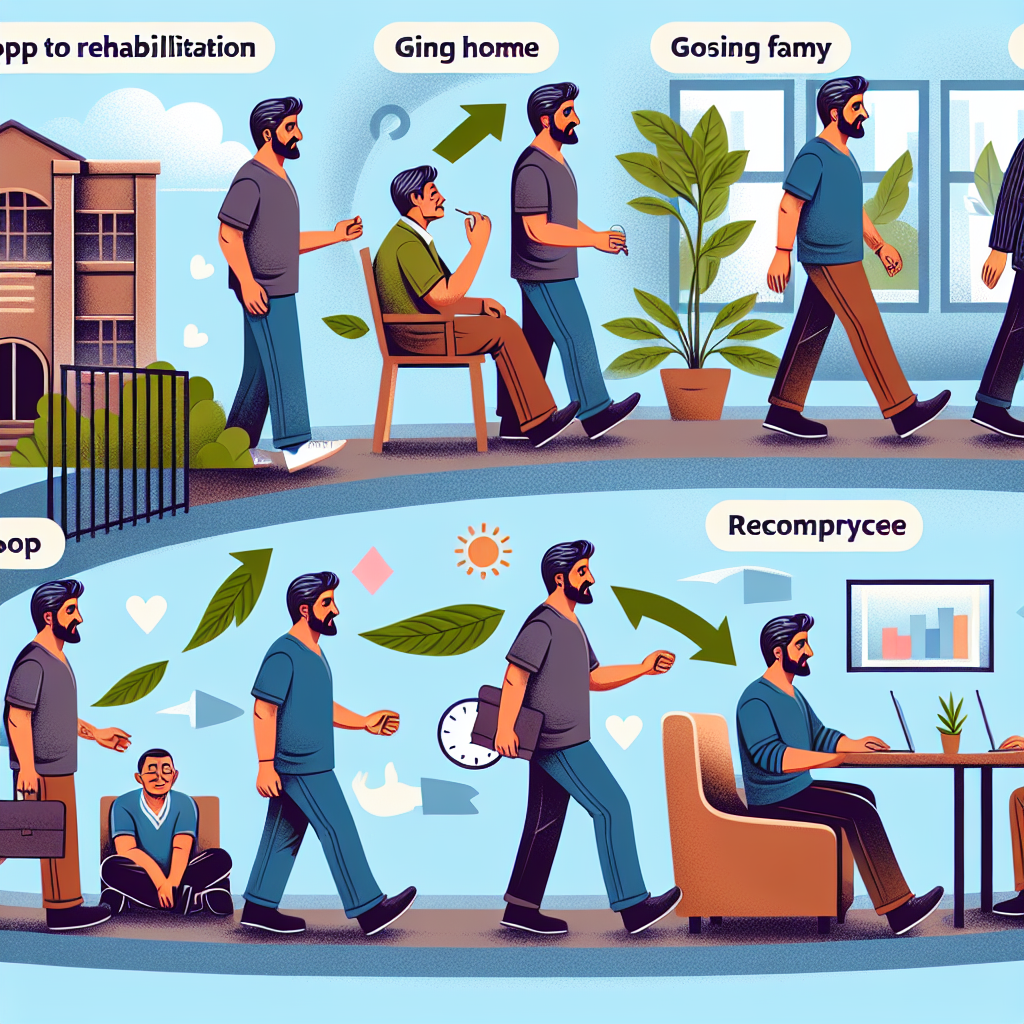-
Table of Contents
“Faith and Spirituality: Guiding Lights on the Path to Addiction Recovery”
Introduction

The Role of Faith and Spirituality in Addiction Recovery
Addiction recovery is a multifaceted process that often requires a holistic approach to address the complex interplay of physical, psychological, and emotional factors. Among the various elements that contribute to successful recovery, faith and spirituality have emerged as significant components. These elements provide individuals with a sense of purpose, hope, and community, which are crucial for overcoming the challenges of addiction. Faith and spirituality can offer a framework for understanding one’s experiences, fostering resilience, and promoting a sense of inner peace. They often serve as a source of strength and motivation, helping individuals to navigate the difficult journey of recovery. By integrating spiritual practices and beliefs into treatment programs, many find a renewed sense of identity and a deeper connection to something greater than themselves, which can be instrumental in sustaining long-term sobriety.
The Impact of Faith-Based Programs on Addiction Recovery
Faith and spirituality have long been recognized as powerful forces in the journey of addiction recovery. For many individuals, the path to overcoming addiction is not just a physical or psychological battle but also a deeply spiritual one. Faith-based programs, which integrate spiritual principles and practices into their recovery models, have shown significant impact on the lives of those struggling with addiction. These programs offer a unique blend of support, community, and spiritual guidance that can be transformative for individuals seeking to break free from the chains of addiction.
One of the most compelling aspects of faith-based programs is their holistic approach to recovery. Unlike traditional methods that may focus primarily on the physical and mental aspects of addiction, faith-based programs address the spiritual dimension as well. This comprehensive approach recognizes that addiction often leaves individuals feeling spiritually bankrupt, disconnected from a sense of purpose, and devoid of hope. By incorporating spiritual teachings and practices, these programs help individuals reconnect with their inner selves and find a renewed sense of meaning and direction in life.
Moreover, faith-based programs often emphasize the importance of community and fellowship. Addiction can be an isolating experience, leading individuals to feel alone and misunderstood. Faith-based recovery groups provide a supportive and nurturing environment where individuals can share their struggles, triumphs, and experiences with others who understand their journey. This sense of belonging and mutual support can be incredibly empowering, fostering a sense of accountability and encouragement that is crucial for long-term recovery.
In addition to community support, faith-based programs often incorporate spiritual practices such as prayer, meditation, and scripture study. These practices can serve as powerful tools for individuals to find solace, strength, and guidance in their recovery journey. For many, turning to a higher power or a spiritual source of strength can provide a sense of comfort and reassurance, helping them navigate the challenges and uncertainties of recovery. The act of surrendering to a higher power can also alleviate the burden of trying to control every aspect of their lives, allowing individuals to focus on their healing and growth.
Furthermore, faith-based programs often instill a sense of hope and optimism that is essential for recovery. The teachings and principles of many faith traditions emphasize themes of redemption, forgiveness, and transformation. These messages can be incredibly inspiring for individuals who may feel trapped by their past mistakes and struggles. By embracing the belief that they can be forgiven and that they have the potential for a new beginning, individuals in faith-based programs can cultivate a positive and forward-looking mindset that is vital for overcoming addiction.
It is also worth noting that faith-based programs are not limited to any one religious tradition. Many programs are inclusive and open to individuals from diverse spiritual backgrounds. This inclusivity allows individuals to explore and deepen their own spiritual beliefs while benefiting from the supportive and nurturing environment of the program.
In conclusion, the impact of faith-based programs on addiction recovery is profound and multifaceted. By addressing the spiritual dimension of addiction, fostering a sense of community, incorporating spiritual practices, and instilling hope, these programs offer a unique and powerful pathway to recovery. For many individuals, faith and spirituality provide the strength, guidance, and inspiration needed to overcome addiction and build a fulfilling and purposeful life.
Spiritual Practices That Aid in Overcoming Addiction
In the journey of overcoming addiction, spiritual practices often play a pivotal role in fostering recovery and promoting long-term sobriety. These practices, deeply rooted in faith and spirituality, offer individuals a sense of purpose, connection, and inner peace, which are essential components in the battle against addiction. By integrating spiritual practices into their recovery process, individuals can find strength and resilience that transcend the physical and psychological challenges of addiction.
One of the most profound spiritual practices that aid in overcoming addiction is prayer. Prayer provides a direct line of communication with a higher power, offering solace and guidance during moments of weakness and despair. For many, the act of praying instills a sense of hope and trust, reinforcing the belief that they are not alone in their struggle. This connection to a higher power can be a source of immense comfort, helping individuals to surrender their burdens and find the courage to continue their recovery journey.
Meditation is another powerful spiritual practice that supports addiction recovery. Through meditation, individuals can cultivate mindfulness and self-awareness, which are crucial for recognizing and managing triggers and cravings. By focusing on the present moment, meditation helps to quiet the mind and reduce stress, allowing individuals to gain clarity and perspective. This practice not only enhances emotional regulation but also fosters a deeper understanding of oneself, which is essential for personal growth and healing.
In addition to prayer and meditation, engaging in communal worship or spiritual gatherings can significantly impact recovery. Being part of a faith-based community provides a sense of belonging and support, which is vital for those in recovery. These communities often offer encouragement, accountability, and a shared sense of purpose, helping individuals to stay committed to their sobriety goals. The collective energy and shared experiences within these groups can be incredibly uplifting, reinforcing the belief that recovery is possible and worth pursuing.
Moreover, the practice of gratitude is a spiritual tool that can transform the recovery experience. By focusing on the positive aspects of life and expressing gratitude for small victories, individuals can shift their mindset from one of scarcity and despair to one of abundance and hope. This practice helps to build resilience and fosters a positive outlook, which is essential for maintaining motivation and perseverance in the face of challenges.
Another spiritual practice that aids in overcoming addiction is the act of service. Helping others and giving back to the community can provide a sense of purpose and fulfillment that counteracts the emptiness often associated with addiction. Acts of service not only benefit those in need but also reinforce the individual’s sense of self-worth and connection to the broader human experience. This practice can be a powerful reminder of the impact one can have on the world, fostering a sense of responsibility and commitment to living a sober and meaningful life.
In conclusion, spiritual practices such as prayer, meditation, communal worship, gratitude, and service play a crucial role in addiction recovery. These practices offer individuals a framework for finding inner strength, purpose, and connection, which are essential for overcoming the challenges of addiction. By embracing these spiritual tools, individuals can cultivate a sense of hope and resilience, empowering them to navigate their recovery journey with faith and determination. The integration of spirituality into the recovery process not only enhances emotional and psychological well-being but also provides a foundation for lasting sobriety and personal growth.
The Connection Between Spirituality and Long-Term Sobriety
The journey to long-term sobriety is often fraught with challenges, and many individuals find that faith and spirituality play a crucial role in their recovery process. While traditional treatment methods such as therapy and medication are undeniably important, the incorporation of spiritual practices can provide an additional layer of support that fosters resilience and hope. This connection between spirituality and long-term sobriety is not merely anecdotal; it is supported by a growing body of research that highlights the benefits of integrating faith into recovery programs.
One of the primary ways spirituality aids in addiction recovery is by offering a sense of purpose and meaning. When individuals are grappling with addiction, they often feel lost and disconnected from their true selves. Spirituality can help bridge this gap by encouraging introspection and self-awareness. Through practices such as prayer, meditation, and mindfulness, individuals can reconnect with their inner values and beliefs, which can serve as a guiding light during difficult times. This renewed sense of purpose can be a powerful motivator, helping individuals stay committed to their sobriety goals.
Moreover, spirituality often fosters a sense of community and belonging, which is essential for long-term recovery. Many faith-based recovery programs, such as Alcoholics Anonymous (AA) and Narcotics Anonymous (NA), emphasize the importance of fellowship and mutual support. These programs create a safe space where individuals can share their struggles and triumphs with others who understand their experiences. This sense of camaraderie can alleviate feelings of isolation and loneliness, which are common triggers for relapse. By building strong, supportive relationships within a spiritual community, individuals are more likely to maintain their sobriety over the long term.
In addition to providing emotional and social support, spirituality can also promote physical and mental well-being. Research has shown that spiritual practices such as meditation and prayer can reduce stress, anxiety, and depression, which are often underlying factors in addiction. By cultivating a sense of inner peace and tranquility, individuals can better manage the emotional turmoil that often accompanies the recovery process. Furthermore, many spiritual traditions emphasize the importance of self-care and holistic well-being, encouraging individuals to adopt healthier lifestyles that support their overall recovery.
Another significant aspect of spirituality in addiction recovery is the concept of surrender and acceptance. Many spiritual teachings emphasize the importance of letting go of control and trusting in a higher power. This can be particularly beneficial for individuals in recovery, as it encourages them to accept their limitations and seek help when needed. By surrendering to a higher power, individuals can release the burden of trying to manage their addiction on their own, which can be both liberating and empowering. This sense of surrender can also foster a deeper sense of gratitude and humility, which are essential qualities for long-term sobriety.
While the role of spirituality in addiction recovery is undeniably significant, it is important to recognize that it is not a one-size-fits-all solution. Each individual’s spiritual journey is unique, and what works for one person may not work for another. Therefore, it is essential for recovery programs to offer a variety of spiritual practices and allow individuals to explore and find what resonates with them. By honoring each person’s unique spiritual path, recovery programs can provide a more comprehensive and personalized approach to sobriety.
In conclusion, the connection between spirituality and long-term sobriety is multifaceted and profound. By offering a sense of purpose, fostering community, promoting well-being, and encouraging surrender, spirituality can provide invaluable support for individuals on their recovery journey. As we continue to explore and understand the role of faith in addiction recovery, it is clear that spirituality can be a powerful ally in the pursuit of lasting sobriety.
Personal Stories of Faith and Recovery from Addiction
In the journey of addiction recovery, personal stories of faith and spirituality often serve as beacons of hope and resilience. These narratives illuminate the profound impact that a deep-seated belief system can have on an individual’s path to sobriety. For many, faith and spirituality provide a foundation of strength, offering solace and guidance during the most challenging times. The transformative power of these elements is evident in countless personal accounts, where individuals have found renewed purpose and direction through their spiritual beliefs.
One such story is that of John, who struggled with alcohol addiction for over a decade. His life was a series of downward spirals, marked by broken relationships and lost opportunities. However, John’s turning point came when he reconnected with his faith. Attending a local church service, he felt an overwhelming sense of peace and belonging that he had not experienced in years. This spiritual awakening became the cornerstone of his recovery journey. Through prayer, meditation, and the support of his faith community, John found the strength to confront his addiction and rebuild his life. His story is a testament to the power of faith in fostering resilience and hope.
Similarly, Maria’s battle with opioid addiction seemed insurmountable until she discovered the spiritual practice of mindfulness and meditation. Introduced to these practices through a recovery program, Maria began to explore the deeper aspects of her spirituality. She found that meditation allowed her to connect with a higher power and gain a sense of inner peace. This spiritual connection became a vital part of her recovery, helping her to stay grounded and focused on her journey to sobriety. Maria’s experience highlights how spirituality can provide a sense of purpose and direction, essential for overcoming addiction.
Moreover, the story of David, a former heroin addict, underscores the importance of community in spiritual recovery. David’s addiction had isolated him from his family and friends, leaving him feeling hopeless and alone. However, when he joined a faith-based recovery group, he found a supportive community that embraced him with open arms. The group’s shared belief in a higher power and collective commitment to sobriety provided David with the encouragement and accountability he needed. Through this spiritual fellowship, David not only achieved sobriety but also discovered a renewed sense of belonging and purpose.
These personal stories illustrate that faith and spirituality can play a crucial role in addiction recovery. They offer a source of strength, hope, and community that can be instrumental in overcoming the challenges of addiction. While the paths to recovery are diverse, the common thread in these narratives is the transformative power of spiritual belief. Whether through prayer, meditation, or community support, faith and spirituality provide a foundation upon which individuals can rebuild their lives.
In conclusion, the role of faith and spirituality in addiction recovery is profound and multifaceted. Personal stories like those of John, Maria, and David demonstrate how spiritual beliefs can inspire resilience, foster inner peace, and create supportive communities. These elements are essential for individuals seeking to overcome addiction and find lasting sobriety. As such, faith and spirituality remain vital components of the recovery process, offering hope and guidance to those on the path to healing.
Q&A
1. **Question:** How does faith contribute to the recovery process in addiction treatment?
**Answer:** Faith can provide individuals with a sense of purpose, hope, and strength, which can be crucial in overcoming the challenges of addiction.
2. **Question:** What role do spiritual practices play in addiction recovery programs?
**Answer:** Spiritual practices such as prayer, meditation, and attending religious services can offer emotional support, reduce stress, and promote a sense of community and belonging.
3. **Question:** How do faith-based recovery programs differ from secular ones?
**Answer:** Faith-based recovery programs often incorporate religious teachings, scripture, and spiritual counseling, while secular programs focus on evidence-based therapies and may not include spiritual elements.
4. **Question:** Can spirituality be beneficial for individuals who do not identify with a specific religion in addiction recovery?
**Answer:** Yes, spirituality can still be beneficial as it encompasses broader concepts like mindfulness, inner peace, and connection to a higher purpose, which can aid in the recovery process.
Conclusion
Faith and spirituality play a significant role in addiction recovery by providing individuals with a sense of purpose, hope, and community. These elements can foster resilience, promote emotional healing, and offer a framework for understanding and overcoming addiction. Spiritual practices and beliefs often encourage self-reflection, accountability, and the development of a supportive network, all of which are crucial for sustained recovery. By integrating faith and spirituality into recovery programs, individuals may find additional strength and motivation to maintain sobriety and rebuild their lives.



